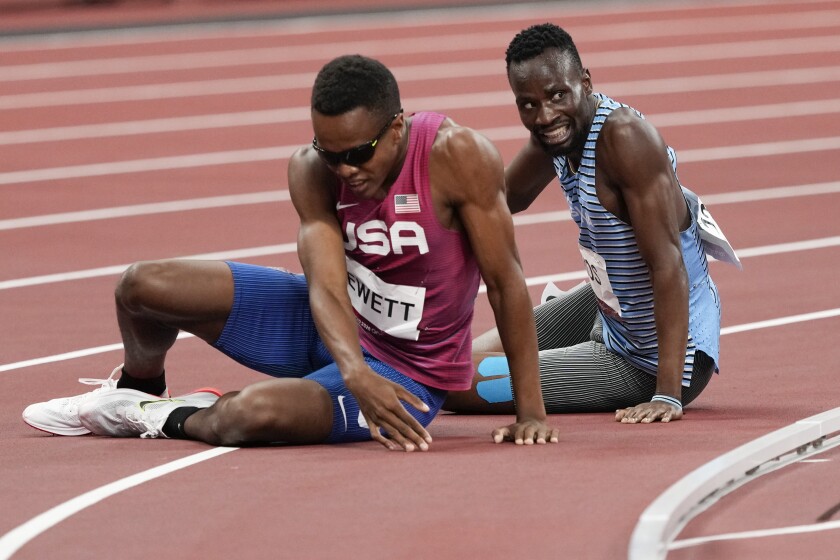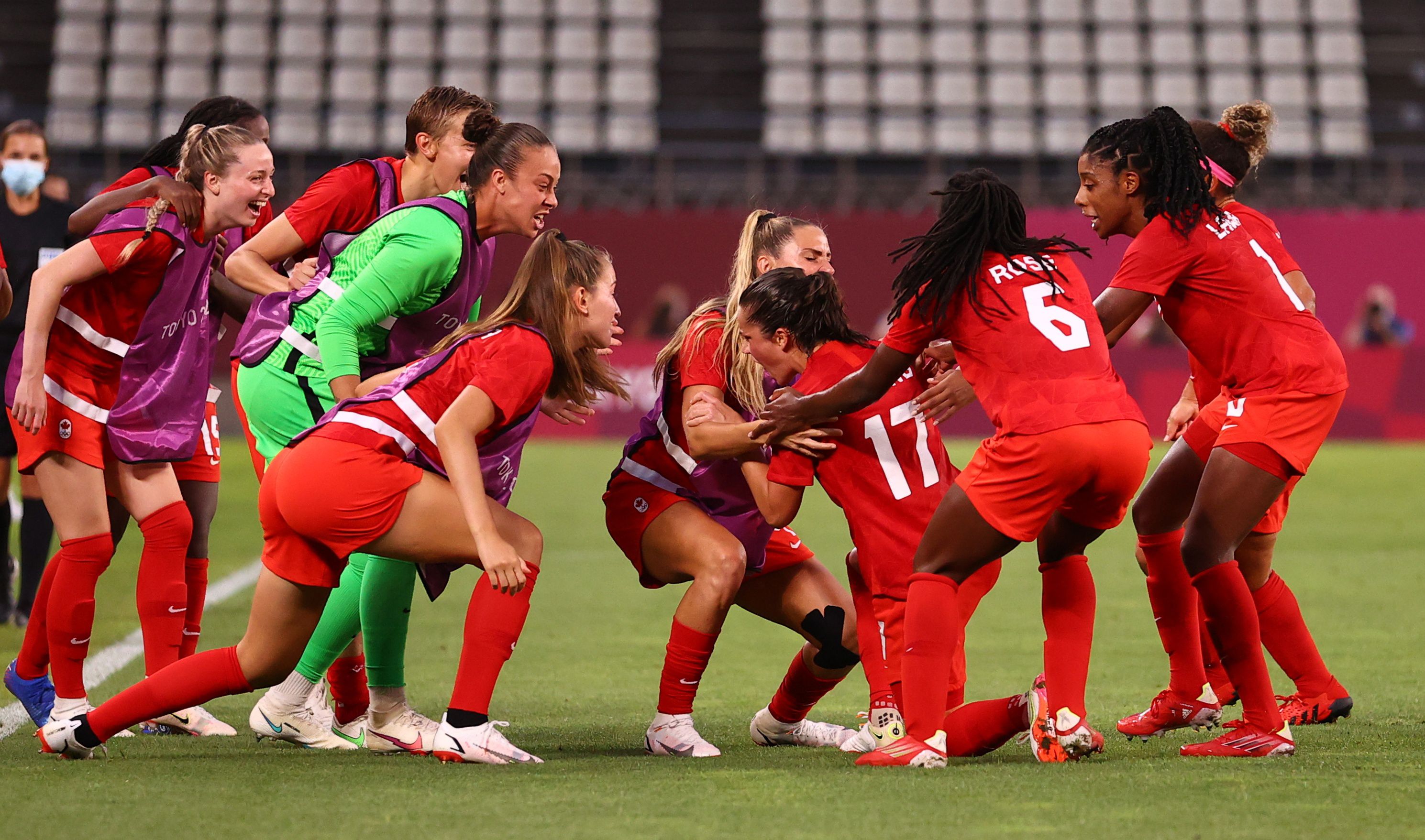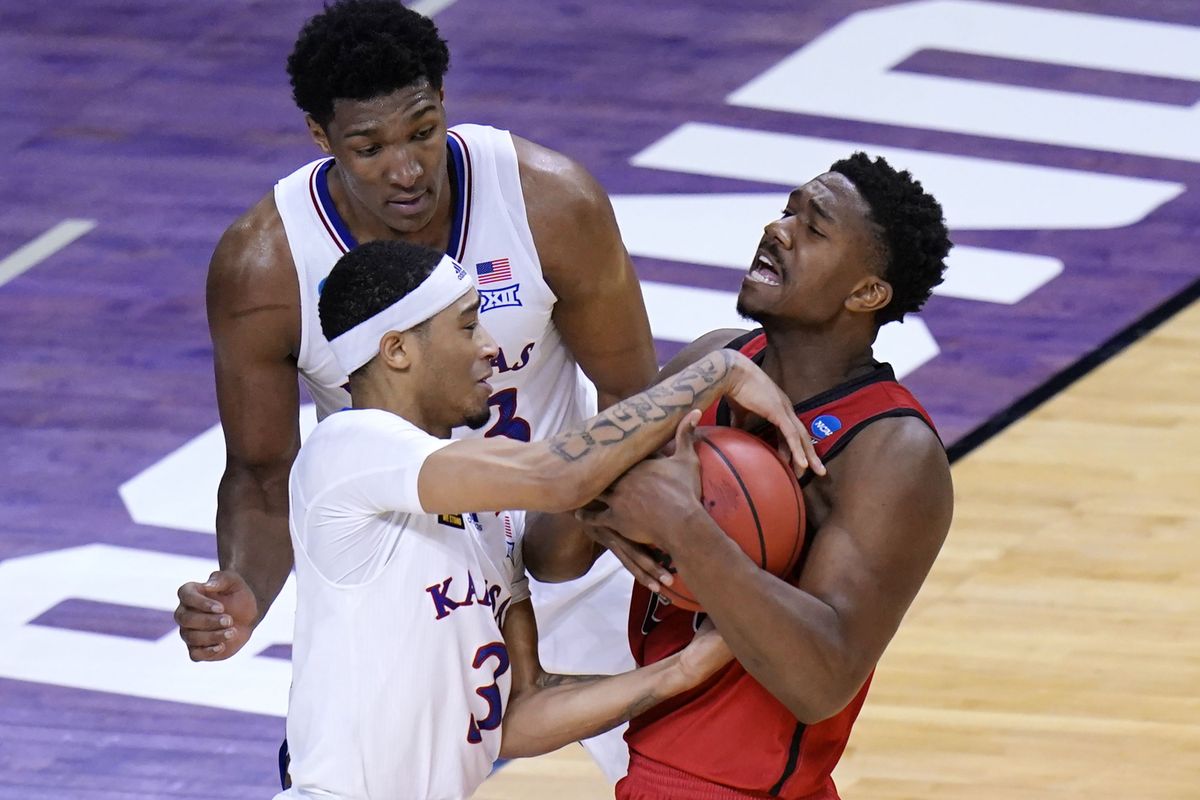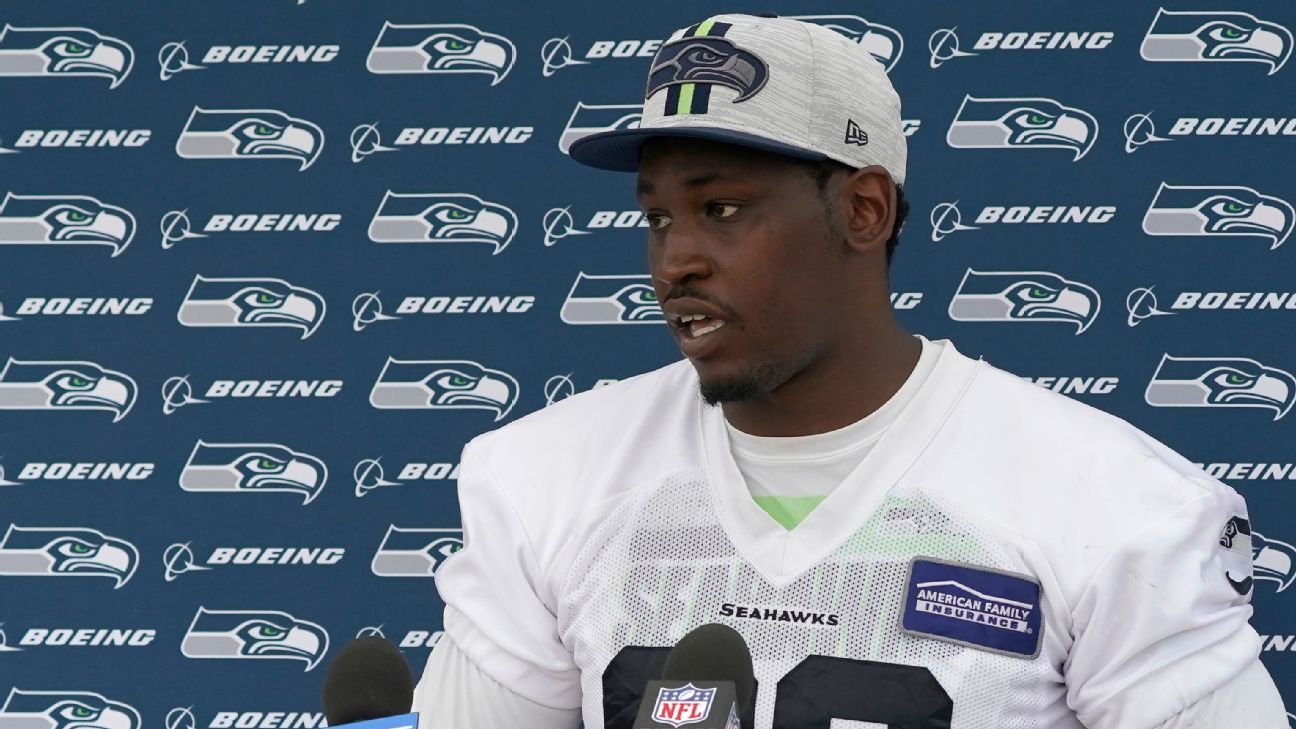A Grip on Sports: It’s hard to see U.S. Olympic dominance continuing down the road to Paris and Los Angeles

A GRIP ON SPORTS • The sun was ready this morning to make it’s usual overpowering summer appearance over Spokane. But it must have given up quickly, beaten back by the haze in the air. The miasma made a point, though. The future is always murky.
•••••••
• The red glow was, in a perverse way, beautiful. The fog-like nature of the air. A large red orb, like Sauron’s eye, rising in the eastern sky. A crimson glow. Mesmerizing. Though the reason behind it, wildfires throughout the region, quickly burned away any possible appreciation. And woke us up.
Not literally. The cat did that with its claws about 20 minutes earlier. No, we’re speaking figuratively. And our focus on this Monday isn’t about anything but the United States and the Olympics.

Once our personal playground. Now, not so much.
The medals’ table from Tokyo tells the story. Since the breakup of the Soviet Union, the United States has been the dominant Olympic power. The Chinese broke through in 2008, when they hosted in Bejing and won 51 gold medals, but other than that, the U.S. has been atop the overall standings each year since Atlanta in 1996.
With less than a week to go in 2020 (actually, 2021, but, you know, the IOC), it is once more, albeit barely. Though it seems a certainty the gold medal crown will go to China for only the second time ever.
Heck, in Rio five years ago, the United States had 19 more gold medals than any other country, as well as 14 more silver and 12 more bronze. This year? As we head down the stretch of the pandemic games, the U.S. is just two medals ahead of China (64-62) overall and trails in gold 29-22.
Is this a blip or a, like the smoky Spokane skies, a harbinger of the future?
We vote for the latter.

Our Olympics team has always been held hostage – or fueled by, depending on your point of view – by college athletics. What alums of most every school would call “minor sports” are the backbone of any Olympic effort. Swimming, diving, wrestling and so on, are where the medal counts rise. And those are the college sports most under financial attack due to the Godzilla-like growth of football and, to a lesser degree, basketball.
Schools throughout the nation have been dropping those sports, at least among men, for more than a decade. The money saved? Usually it goes to another video coordinator or nutrition specialist for the football program. OK, we exaggerate for effect. Administration personnel numbers have grown exponentially as well, fueled by a need to keep up with rules from the NCAA and the federal government. The finite resources college athletic programs labor under are, more and more, being funneled into the beasts that dominate television programming.
Heck, when Stanford, a school with a multi-million dollar athletic endowment, starts dropping fencing, field hockey and men’s volleyball, you know those Olympic sports in the U.S. are in trouble. The school announced in July of 2020 it was dropping 11 sports, all of which lead to the Olympics.
The Cardinal reversed course in May, but the announcement underscored the fragility of such sports in our nation’s hierarchy.
Heck, if you are a college-age athlete in the West, want to wrestle at the Division I level, you only have seven choices on this side of the Rocky Mountains. Only three Pac-12 universities, Oregon State, Stanford (it was one of the 11 that was recently saved) and Arizona State, offer the sport anymore.
That’s the way our society works, of course. Money matters. And a sport that is in the public eye once every four years, doesn’t bring in much. Or any. But the ever-growing contraction of such sports at the college level will bring a corresponding contraction of medal wins at the Olympics. There are other reasons as well, scandals, drug-testing failures, inept leadership, but the heart of the issue is the outlay of money at the collegiate level.
We warned about this four years ago as the U.S. was dominating in Rio. It seemed a bit silly. But it was also Cassandra-like.
Which brings us back to our first point. We were wrong. The Olympic future for the United States is actually clear, not murky. It’s just that the future won’t be as bright as the recent past.
•••

Olympics: There won’t be gold for the U.S. women in soccer. They lost their semifinal to Canada 1-0 as the generation of dominance seems to be ending. … Jade Carey won gold in floor exercise. And Simone Biles, who has been let down by many, will return for the balance beam. … The U.S. women held off France to finish basketball pool play undefeated. … The men will have to play better to win as the medal round begins. … Track and field is underway, though there has been little success for the U.S. sprinters thus far. Or the middle distance runners.

WSU: Kim Aiken is set to decide, again, on where he will play basketball next season. The former Eastern Washington standout picked Arizona, then Washington State and, after changing his mind once more, will announce today his newest choice. … Elsewhere in the Pac-12 and college sports, we are in the roster preview section of summer. We have one kicking off a series of them for Washington. … Or position preview time. We can pass along two for Oregon, specialists and quarterback. … There is also an offensive line preview from Arizona. … The receivers at UCLA want to make a bigger impact this season. … Speaking of impacts, Britain Covey is having a lot at Utah. … In basketball news, it is news when new Arizona coach Tommy Lloyd meets with old Arizona coach Sean Miller. … Oregon has landed one of the best guards in girls’ basketball.
Preps: There is sad news to report in this space. Former Shadle Park track star Jakobe Ford was shot and killed Saturday night in downtown Spokane. Sydney Brown has the story. We have thoughts. This crap happens all too often recently here. Too many fights, too many stabbings, too many gunshots. We have no solutions but we do have a prayer. That it stops. Now.

Indians: Spokane won four of six games against Vancouver at Avista Stadium this week, though the final game of the series went to the visitors, 6-3. Dave Nichols has the game story (including the news that star Michael Toglia is on his way to Double-A Hartford today) while Libby Kamrowski has a photo gallery.
Mariners: Another day, another loss to the lowly Rangers. Again it was Jonah Heim who delivered the big blow in a 4-3 loss. The M’s now head to Tampa Bay. … It was an eventful week overall for the squad.

Seahawks: Aldon Smith has a bigger battle than getting past an offensive tackle. He’s battling to stay sober. … Robert Nkemdiche sees the Hawks as a last-chance opportunity. … Sean Mannion has joined the roster. … There is one corner trying to make the team that has two picks against Russell Wilson.
Sounders: The U.S. won the Gold Cup title 1-0 over Mexico last night, using what some called the junior varsity lineup.
Kraken: There was an accounting error in free agent Philipp Grubauer’s contract. It’s been fixed.
Softball: A sport for young and old alike. And, as our weekly local briefs show, success for all different age groups from the area.
•••
• We had a to-do list a mile long yesterday as we prepared to end our vacation and Kim got ready to return to work. Not on it: Fixing a problem with the water line headed into our ancient refrigerator. But that’s what happened. Three hours worth of “happened.” We got it done but talk about being thrown off schedule. Now I wonder if I will have time today to hit the animal shelter and look for a new addition to our family. We’ve been without a second dog for more than a year and feel it’s time to give Junior a companion. I’ve already picked out a name. Until later …